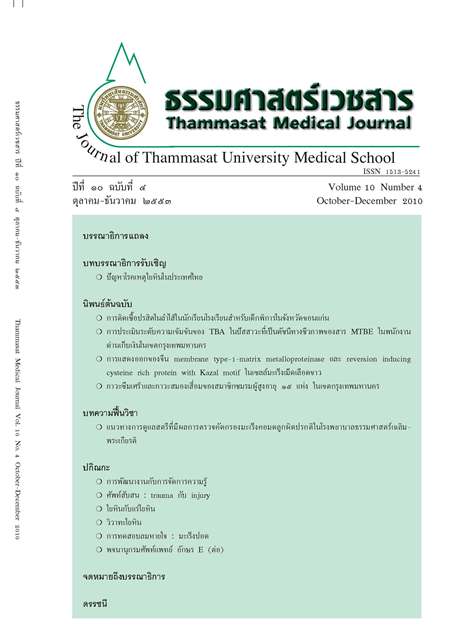Depression and dementia among members of 15 elderly clubs in Bangkok
Keywords:
prevalence, depression, dementia, elderly clubAbstract
Objective: To determine the prevalence of depression and dementia among members of elderly clubs in Bangkok.
Methods: The study is a cross sectional descriptive survey. The participants include 181 Thai elderly (agedat least 60 years old) from 15 elderly clubs in Bangkok. The assessment tools were as follows:questionnaire inquiring about demographic data, Thai Geriatric Depression Scale (TGDS) and ThaiMental State Examination (TMSE). If the subjects had the TGDS score more than 12, they wereclassified as having depression. With the TMSE score less than 24, they were diagnosed with dementia.
Results: From one hundred eighty one subjects. There were 156 females (86.2%) and 25 males (13.8%). Theage ranged from 60 to 83 years old, with the mean of 68.1 years old. The prevalence of depressionand dementia were 7.7 per cent equally. Females had twice higher prevalence of depression than males.The psychosocial factor which was associated with depression was the number of the years of education.The prevalence of depression decreased with the number of the years of education. The factor whichwas associated with dementia was the number of the years of education. The prevalence of dementiaalso decreased with the number of years of education.
Conclusion: The prevalence of depression and dementia in the Thai ageing population from elderly clubs wasrelatively lower than that in other studies of the general elderly population.
Key words: prevalence, depression, dementia, elderly club



